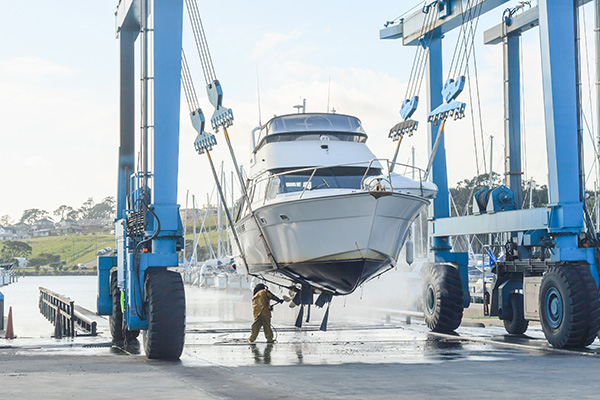
Yachts are built for adventure, comfort, and performance on the water—but they’re also complex vessels with many moving parts. Just like any vehicle, regular service and preventive maintenance are key to keeping them running smoothly. Whether you use your yacht for weekend getaways or full-time cruising, staying ahead of problems can save you money, protect your investment, and ensure every voyage goes as planned.
Here are some of the most common yacht problems our customers face—and how proper service can help avoid them.
Engine Issues from Lack of Maintenance
The engine is the heart of any yacht, and it’s also one of the most expensive components to repair or replace. Failing to keep up with oil changes, filter replacements, and cooling system flushes can lead to overheating, oil leaks, or poor fuel efficiency. Corrosion, dirty injectors, and worn belts are all common problems in yachts that don’t see regular maintenance.
A consistent service schedule—especially at the start and end of boating season—can help prevent engine trouble before it starts. This includes checking oil quality, inspecting hoses and belts, testing coolant levels, and ensuring the fuel system is clean and free of moisture.
Electrical System Failures
Marine electrical systems face unique challenges—exposure to moisture, salt, and vibration can cause corrosion, short circuits, or battery issues. Problems like dimming lights, dead batteries, and non-responsive navigation systems often trace back to poor wiring or aging components.
Routine inspections of wiring connections, battery voltage, and fuse panels can catch small problems early. Installing corrosion-resistant terminals and keeping electrical components dry and clean can go a long way in preserving reliability.
Fuel System Contamination
Fuel contamination is one of the most common causes of engine trouble at sea. Water, sludge, or microbial growth (known as “diesel bugs”) in the fuel tank can clog filters, damage injectors, and leave you stranded. This is especially common in yachts that sit unused for long periods.
Professional fuel system cleaning, proper storage techniques, and using fuel stabilizers during downtime can help prevent these issues. Routine filter replacements and tank inspections are also essential.
Hull and Propeller Damage
Your yacht’s hull and propellers are in constant contact with the water—and everything in it. Striking underwater debris, dock structures, or even excessive marine growth can cause dings, cracks, or imbalance. Left unchecked, damage to the hull or running gear can affect performance and fuel efficiency, or even compromise safety.
Scheduling regular inspections below the waterline helps identify early signs of damage. Cleaning the hull, checking for corrosion, and inspecting propellers for wear are all important steps that should be included in every service plan.
Steering and Control Problems
Stiff, unresponsive steering or trouble with throttle controls are more than just inconveniences—they can pose serious safety risks. Common causes include worn hydraulic lines, low fluid levels, or corroded cables and fittings. On older yachts, mechanical steering components can seize or degrade without warning.
Regular lubrication, system bleeding, and inspection of control linkages and hydraulic components can help keep your vessel responsive and safe to operate.
Bilge Pump and Drainage System Failures
Your bilge pump is your last line of defense against water intrusion. If it fails, your yacht can quickly take on water—especially during rough seas or heavy rain. Pumps that are clogged, corroded, or burned out can go unnoticed until it’s too late.
Testing your bilge pump regularly and keeping the area clean and dry can prevent failure. Also, make sure the float switch works properly and that the wiring is corrosion-free.
Cooling System Neglect
Many marine engines use a combination of freshwater and raw water cooling systems. If either side becomes clogged with debris or develops a leak, your engine can overheat fast. Impeller wear, blocked strainers, and scale buildup in heat exchangers are common issues that can lead to bigger problems.
Flushing the cooling system, replacing impellers on schedule, and inspecting raw water intake points are all part of a good preventive maintenance plan.
Bulletproof Marine Services – Reliable Yacht Maintenance in San Diego, CA
At Bulletproof Marine Services in San Diego, CA, we understand what it takes to keep yachts running. Whether you're prepping for the season or need a full inspection before a trip, our marine specialists can catch the problems others miss. Schedule your service today and enjoy peace of mind every time you leave the dock.